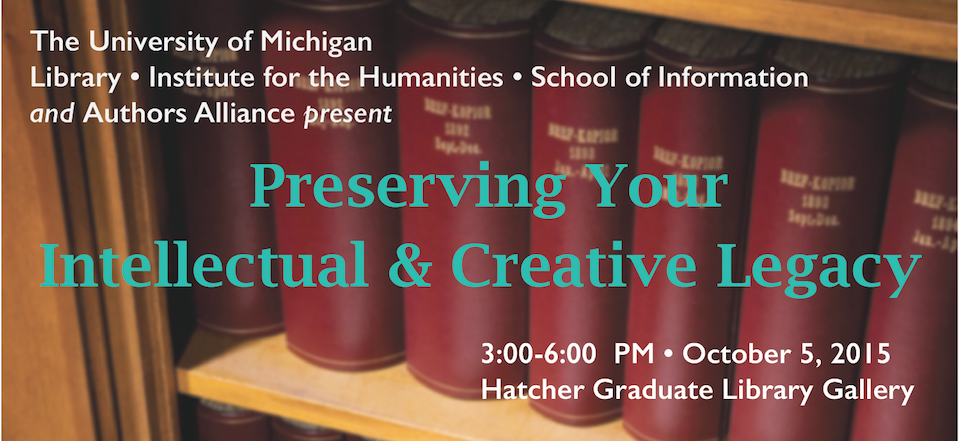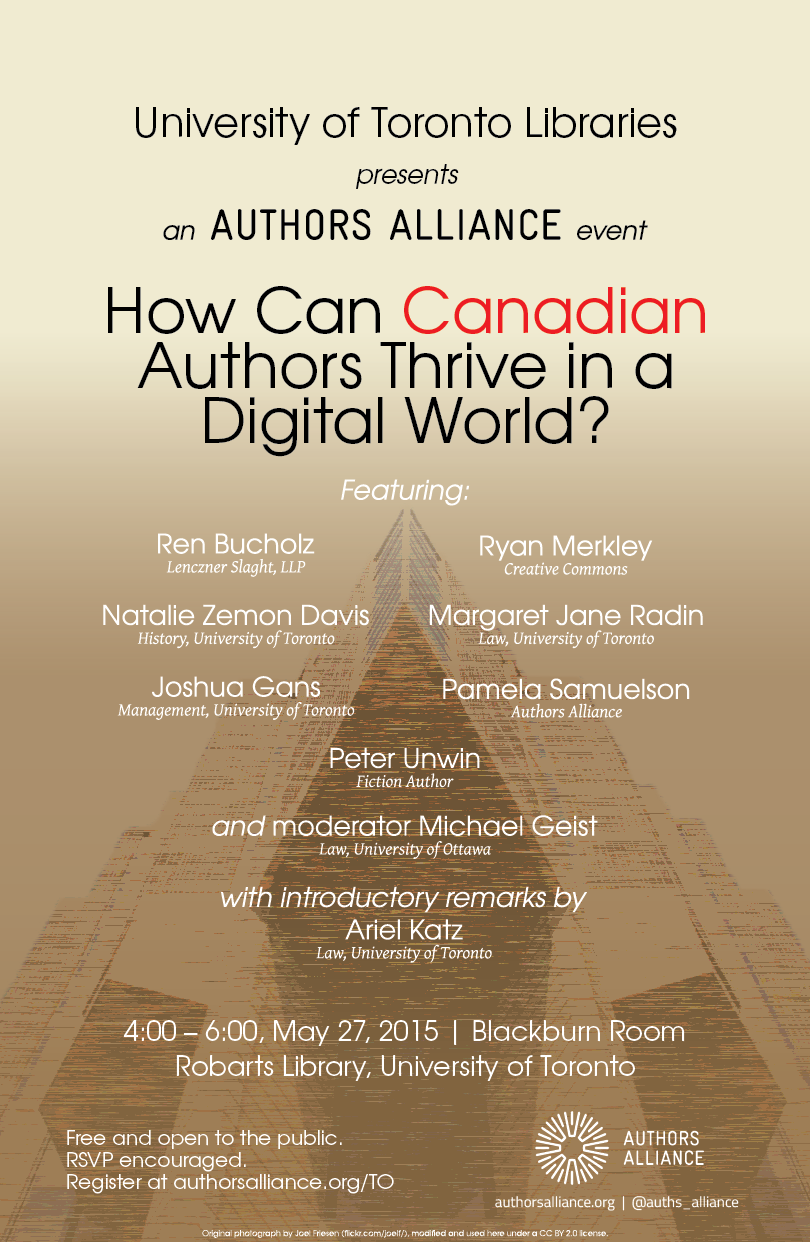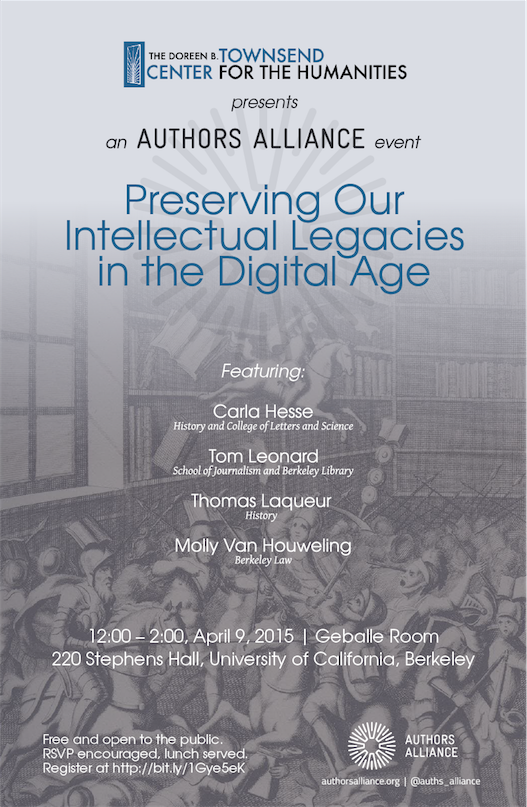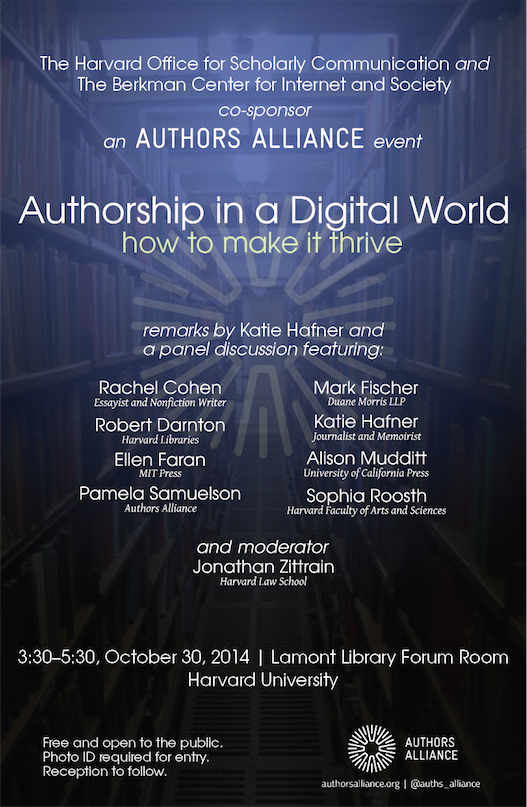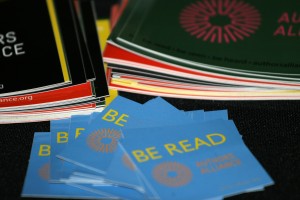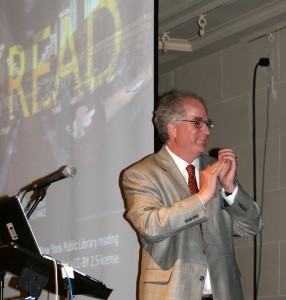Calling all Wolverines and Michiganders!
Join Authors Alliance as we team up with the University of Michigan Library and the U-M Institute for the Humanities to present a panel discussion and workshops on “Preserving Your Creative & Intellectual Legacy.” This is the first in a series of workshops scheduled around the country throughout the fall and spring to provide hands-on expertise and assistance to authors. The event will feature a panel discussion followed by workshops designed to help creators both make and keep their works accessible to a wide audience, now and in the future.
Panelists include a range of University of Michigan faculty, independent authors, and legal experts:
- Paul Courant, Harold T. Shapiro Collegiate Professor Public Policy
- Don Herzog, Edson R. Sunderland Professor of Law
- James Hilton, University Librarian and Dean of Libraries, and Vice Provost for Digital Education and Innovation
- Melissa Levine, U-M Library Lead Copyright Officer
- Jessica Litman, John F. Nickoll Professor of Law
- Robert James Russell, author and founding co-editor of the literary journal Midwestern Gothic
- Sidonie Smith, Mary Fair Croushore Professor of the Humanities and Director of the Institute for the Humanities
- Jennifer Traig, author of Devil in the Details: Scenes from an Obsessive Girlhood and other books
- Molly Shaffer Van Houweling, UC Berkeley Professor of Law and member of the Authors Alliance Board of Directors
- Michael Wolfe, Executive Director of Authors Alliance
The event is free and open to the public. Registration is encouraged but not required. More information can be found at authorsalliance.org/michigan.
Our events programming, our tools and resources like the recent rights reversion guide, and our advocacy all depend on the continued support of our members. Help us keep things going by joining, donating, and spreading the word!

